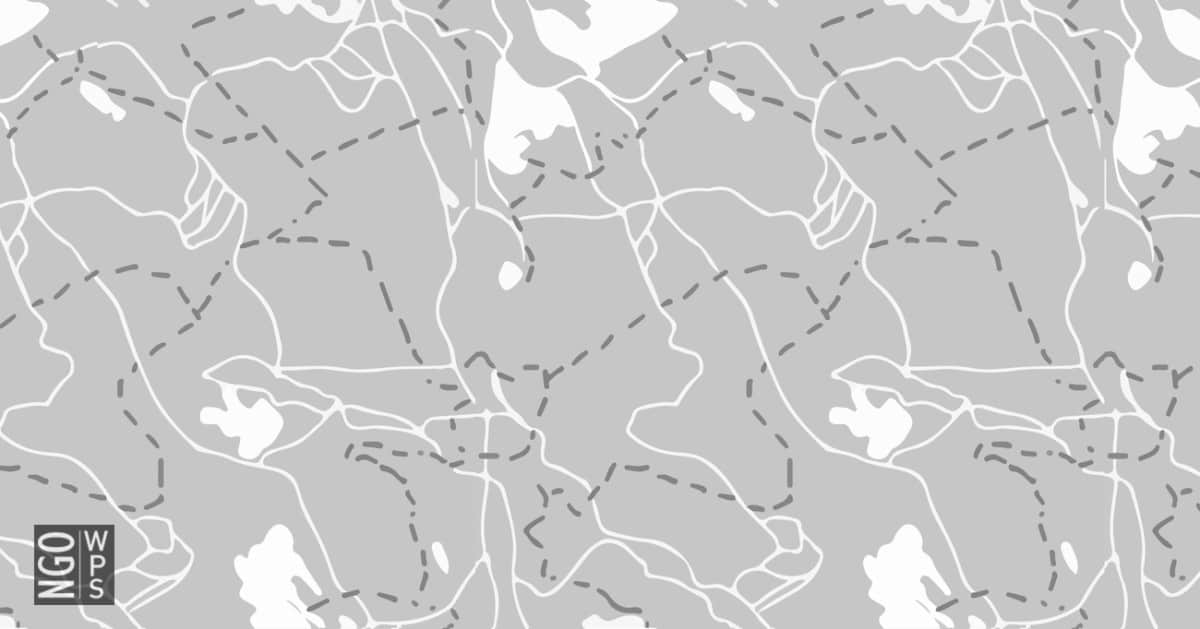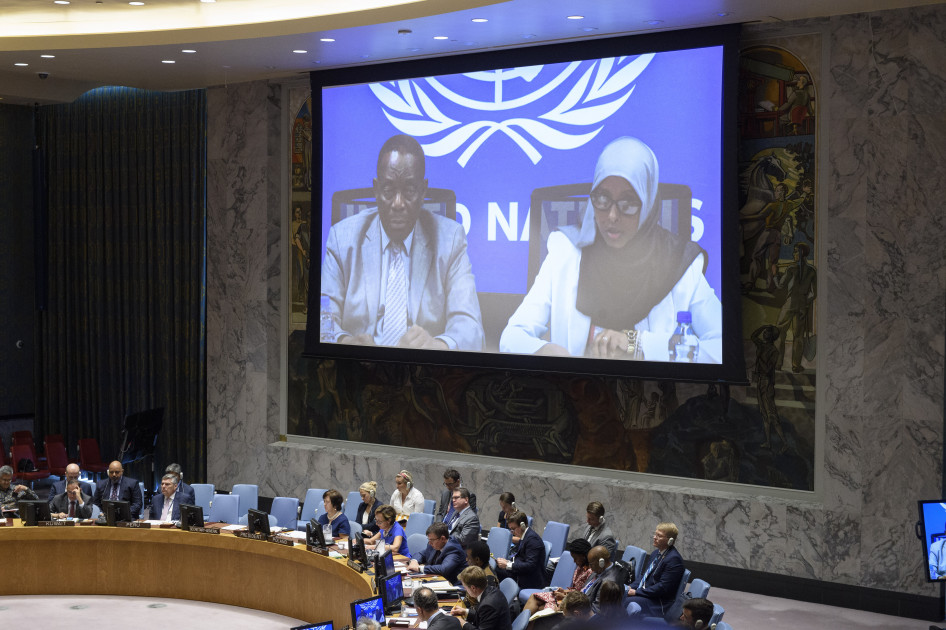Somalia
Somalia’s long-running armed conflict has been characterized by extremism, sectarian political violence, complex humanitarian crises, and piracy, and women have been disproportionately at risk of death and as targets of sexual and gender-based violence and displacement.
Based on the work of NGOWG members and their partners, the NGOWG advocates for women’s political participation, women’s meaningful and active participation in design and implementation of humanitarian responses, and strengthened mechanisms to prevent and respond to sexual and gender based violence.
Somalia
Somalia’s long-running armed conflict has been characterized by extremism, sectarian political violence, complex humanitarian crises, and piracy. Women have been disproportionately at risk of death, and as targets of sexual and gender-based violence and displacement.
Based on the work of NGOWG members and their partners, the NGOWG advocates for women’s political participation, women’s meaningful and active participation in design and implementation of humanitarian responses, and strengthened mechanisms to prevent and respond to sexual and gender based violence.
Current and Past Recommendations to the UN Security Council (Monthly Action Points)
The Security Council will be renewing the mandate for the UN Assistance Mission in Somalia (UNSOM). In its renewal, the Council must maintain existing preambular and operative language on women, peace and security and update the mandate to include standard language explicitly mainstreaming gender as a cross-cutting issue in UNSOM’s mandate. Further, the Council should:
- Require UNSOM to ground their support for the forthcoming elections and constitutional review process, strengthening the rule of law and security sector reform (SSR), and addressing corruption in intersectional, gender-sensitive analysis developed and executed with the input from regular, ongoing consultation with diverse civil society organizations, including women’s groups (S/RES/2461 (2019), OP 4). Language regarding consultations with civil society organizations that was removed in 2019 should be replaced.
- As per the recommendations from the August 2019 civil society briefer, Amina Arale, add language in UNSOM’s mandate that calls for the mission to establish a protection mechanism to ensure women candidates can campaign without restriction or violence, and support women’s meaningful participation in the forthcoming elections as candidates, voters, and poll workers, including by ensuring their safety (S/RES/2408 (2018), OPs 2, 4, 21).
- Add language in UNSOM’s mandate calling on the mission to ground its support for efforts to counter terrorism and prevent violent extremism in intersectional gender-sensitive conflict analysis which identifies root causes of insecurity and conflict, including various forms of inequality and exclusion, and further call on all actors to ensure implementation does not undermine the human rights of women civil society leaders and HRDs, and prevent diverse civil society organizations from operating effectively (S/RES/2461 (2019), OP 15).
- Add language calling on SSR efforts to not only be inclusive, but also grounded in protection and promotion of human rights and support civil society efforts to monitor and hold accountable security institutions for their obligations in that respect. Further, diverse civil society organizations (CSOs), including women’s groups should be actively consulted in the course of SSR (S/RES/2461 (2019), OP 11).
- Add language noting the particular impact forced evictions of internally displaced persons (IDPs) has on diverse women and girls, including women and girls with disabilities, due to the increased risk of violence, including SGBV, and call on stakeholders to ensure efforts to respond to the humanitarian crisis are gender-sensitive (S/RES/2461 (2019), OP 19).
- Add language calling on the Government to ensure its implementation of the Convention on the Rights of Persons with Disabilities, and related national laws, are gender-sensitive and inclusive of groups led by women and girls with disabilities (S/RES/2461 (2019), OP 20).
- Add language calling on UNSOM and relevant actors to mainstream intersectional gender-sensitive analysis in its risk assessments related to preventing conflict and violence, including in those undertaken as part of addressing the link between the climate crisis and potential insecurity (S/RES/2461 (2019), OP 21).
- Require UNSOM to ground their support for the forthcoming elections and constitutional review process, strengthening the rule of law and security sector reform (SSR), and addressing corruption in intersectional, gender-sensitive analysis developed and executed with the input from regular, ongoing consultation with diverse civil society organizations, including women’s groups (S/RES/2461 (2019), OP 4). Language regarding consultations with civil society organizations that was removed in 2019 should be replaced.
- As per the recommendations from the August 2019 civil society briefer, Amina Arale, add language in UNSOM’s mandate that calls for the mission to establish a protection mechanism to ensure women candidates can campaign without restriction or violence, and support women’s meaningful participation in the forthcoming elections as candidates, voters, and poll workers, including by ensuring their safety (S/RES/2408 (2018), OPs 2, 4, 21).
- Add language in UNSOM’s mandate calling on the mission to ground its support for efforts to counter terrorism and prevent violent extremism in intersectional gender-sensitive conflict analysis which identifies root causes of insecurity and conflict, including various forms of inequality and exclusion, and further call on all actors to ensure implementation does not undermine the human rights of women civil society leaders and HRDs, and prevent diverse civil society organizations from operating effectively (S/RES/2461 (2019), OP 15).
- Add language calling on SSR efforts to not only be inclusive, but also grounded in protection and promotion of human rights and support civil society efforts to monitor and hold accountable security institutions for their obligations in that respect. Further, diverse civil society organizations (CSOs), including women’s groups should be actively consulted in the course of SSR (S/RES/2461 (2019), OP 11).
- Add language noting the particular impact forced evictions of internally displaced persons (IDPs) has on diverse women and girls, including women and girls with disabilities, due to the increased risk of violence, including SGBV, and call on stakeholders to ensure efforts to respond to the humanitarian crisis are gender-sensitive (S/RES/2461 (2019), OP 19).
- Add language calling on the Government to ensure its implementation of the Convention on the Rights of Persons with Disabilities, and related national laws, are gender-sensitive and inclusive of groups led by women and girls with disabilities (S/RES/2461 (2019), OP 20).
- Add language calling on UNSOM and relevant actors to mainstream intersectional gender-sensitive analysis in its risk assessments related to preventing conflict and violence, including in those undertaken as part of addressing the link between the climate crisis and potential insecurity (S/RES/2461 (2019), OP 21).
The Security Council will be renewing the mandate for the UN Assistance Mission in Somalia (UNSOM). In its renewal, the Council must maintain existing preambular and operative language on women, peace and security and update the mandate to include standard language explicitly mainstreaming gender as a cross-cutting issue in UNSOM’s mandate. Further, the Council should:
Relevant Resources









